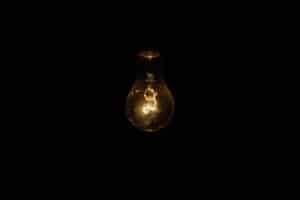How to choose the right generator for your company

Photo by Rodion Kutsaiev on Unsplash
Power reliability is crucial for businesses of all sizes, whether to keep essential operations running during outages or to provide backup power for critical equipment. A generator ensures that your company remains operational during power failures, preventing financial losses and disruptions to productivity.
Choosing the right generator depends on factors such as power capacity, fuel type, operating environment, and long-term efficiency. With various models available, understanding the key considerations can help you select the best generator for your company’s needs.
Assessing your power requirements
Before investing in a generator, it is essential to determine the amount of power your business needs during an outage. Different industries have unique power demands, from small office operations requiring minimal backup to manufacturing plants that rely on high-energy equipment.
To calculate the necessary power capacity, list all critical devices and equipment that need backup power. Consider items such as computers, servers, lighting, security systems, refrigeration, HVAC units, and specialized machinery.
Generators are measured in kilowatts (kW), so adding up the wattage of all necessary equipment provides an estimate of the required power output. It is always advisable to choose a generator with a slightly higher capacity than your estimated needs to account for unexpected power surges or future business expansion.
Selecting the right fuel type
Generators are powered by various fuel sources, each offering unique advantages and considerations. The most common types include diesel, natural gas, propane, and gasoline.
Diesel generators are known for their durability, efficiency, and long lifespan. They provide stable power output, making them ideal for commercial and industrial applications. Look for diesel generators for sale when seeking a reliable, cost-effective backup power solution that requires minimal maintenance. Natural gas generators offer convenience since they connect to an existing gas supply, eliminating the need for fuel storage. They produce lower emissions compared to diesel models but may have higher operating costs depending on local gas prices.
Propane generators are a good choice for businesses in remote areas without access to natural gas. They burn cleaner than diesel and gasoline but require external storage tanks for fuel supply.
Gasoline generators are typically used for portable and small-scale applications. While they are easy to refuel, gasoline degrades over time, making long-term storage a challenge.
Choosing the right fuel type depends on your business’s location, operational needs, fuel availability, and budget.
Determining whether you need a standby or portable generator
Generators are available in two primary types: standby and portable. Each serves different business requirements based on power demand and operational flexibility.
Standby generators are permanently installed units that automatically activate when a power outage occurs. They provide seamless backup power, ensuring minimal disruptions. These generators are ideal for businesses that require continuous power, such as hospitals, data centers, and manufacturing facilities.
Portable generators, on the other hand, offer flexibility for businesses that need temporary or occasional backup power. They are often used on construction sites, outdoor events, and remote locations where a fixed power source is unavailable. While portable generators provide convenience, they require manual setup and may not supply enough power for larger facilities.
Considering noise levels and environmental impact
Depending on your business location, noise levels may be a significant factor when selecting a generator. Urban areas, office environments, and commercial spaces often require low-noise generators to comply with local noise regulations and avoid disturbing employees or customers.
Diesel generators tend to be noisier than natural gas or inverter generators. However, many modern models come with noise-reduction features such as insulated enclosures and advanced muffler systems to minimize sound output.
Environmental impact is another factor to consider. Some fuel types, such as diesel, produce higher emissions, while cleaner energy options like propane and natural gas contribute less pollution. Businesses prioritizing sustainability may opt for eco-friendly generator models with lower carbon footprints.
Factoring in maintenance and longevity

Image by Sergey Isaev from Pixabay
The lifespan and maintenance requirements of a generator depend on factors such as usage frequency, fuel type, and build quality. Commercial generators are designed for long-term operation, but regular maintenance is essential for optimal performance.
Diesel generators generally require less maintenance compared to gasoline models, as they operate at lower temperatures and have fewer components that wear out quickly. Natural gas generators need routine inspections to ensure gas lines are free from leaks and that components remain in good condition.
When purchasing a generator, check the manufacturer’s maintenance recommendations and availability of service support. Investing in a model with readily available replacement parts and professional servicing options ensures long-term reliability.
A generator is a vital investment for businesses that depend on uninterrupted power. Choosing the right model involves assessing power needs, selecting an appropriate fuel type, deciding between standby or portable options, and considering factors like noise, maintenance, and cost.
By carefully evaluating these aspects, businesses can ensure they have a reliable backup power source that meets their operational demands. Whether protecting critical data, maintaining customer service, or powering essential equipment, the right generator provides peace of mind and business continuity in the face of unexpected outages.

